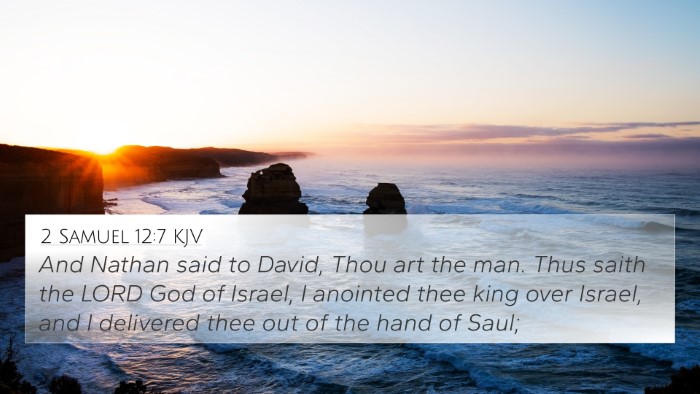Understanding 1 Kings 14:7
The verse 1 Kings 14:7 states: "Go, tell Jeroboam, Thus saith the Lord God of Israel, Forasmuch as I exalted thee from among the people, and made thee prince over my people Israel," presents a profound message about God's sovereignty and His dealings with those in power.
This verse comes during a pivotal moment in Israel's history, when Jeroboam, having been anointed by God, became the first king of the northern kingdom of Israel. His rise did not come without conditions and expectations from God, which are essential to understand the larger narrative and themes present in the scriptures.
Commentary Insights
-
Matthew Henry:
Henry emphasizes the divine choice of Jeroboam and highlights God’s authority in placing leaders. He points out that this not only reflects God's power but serves as a reminder of the responsibilities that come with leadership. Leaders must remain accountable to God’s commandments to retain His blessings.
-
Albert Barnes:
Barnes adds that God is addressing Jeroboam as a means to remind him of his humble beginnings and the mercy shown to him. He establishes a connection between Jeroboam’s rise and the expectations of his conduct. Barnes asserts that failure to follow God's ways would lead to dire consequences.
-
Adam Clarke:
Clarke notes the importance of obedience to divine instruction, which is crucial in establishing Jeroboam's authority. He also discusses the implications of God’s promise concerning the dynasty of Jeroboam, emphasizing unity under God's rule as fundamental to Israel’s future.
Thematic Connections
This verse can be examined through the lens of several recurring Biblical themes including validity of leadership, the consequences of disobedience, and God’s active role in guiding nations.
- Divine Authority: This verse showcases the sovereignty of God in appointing rulers. It inspires believers to reflect on how God can elevate and bring down leaders based on their adherence to His guidance.
- Accountability: Jeroboam’s appointment signifies a call for accountability. Should he stray from God's commandments, it serves as a reminder of the repercussions inherent in leadership roles.
- Grace and Responsibility: While God showed grace by appointing Jeroboam, this grace is also accompanied by the expectation of faithfulness, mirroring the relationship of God with His people.
Cross-References to Consider
There are several other verses that provide a deeper understanding of the themes present in 1 Kings 14:7:
- 1 Samuel 12:13: God’s selection of leaders according to His will.
- 2 Chronicles 11:15: The establishment of false worship in Jeroboam’s reign.
- 1 Kings 11:29-38: The prophecy concerning Jeroboam’s rise and the division of the kingdom.
- Proverbs 21:1: The heart of the king is in the hand of the Lord.
- Isaiah 40:23: God is the one who brings princes to nothing.
- Romans 13:1: Every person must submit to governing authorities as they are instituted by God.
- Matthew 23:12: Those who exalt themselves will be humbled, a significant warning to leaders.
Applying the Insights
By understanding 1 Kings 14:7, believers can glean important lessons regarding leadership, authority, and the need for unwavering faithfulness to God. The connections drawn from the cross-references reveal a cohesive narrative throughout scripture, reminding us of the interplay between divine purpose and human free will.
Regularly engaging with these themes through various Bible verse connections enhances comprehension of scripture. It highlights the interconnectedness of Biblical texts and encourages deeper study into how the Old and New Testaments dialogue with each other. This promotes a comprehensive understanding and worship of God who governs the affairs of humanity.
Conclusion
1 Kings 14:7 serves as a reminder of God's grace and the responsibilities that come with leadership positions. By studying this verse along with cross-references, believers can better assess the character of leaders and the expectations set by God. The insights drawn from public domain commentaries offer a rich, layered understanding that is essential for personal growth and effective leadership.







